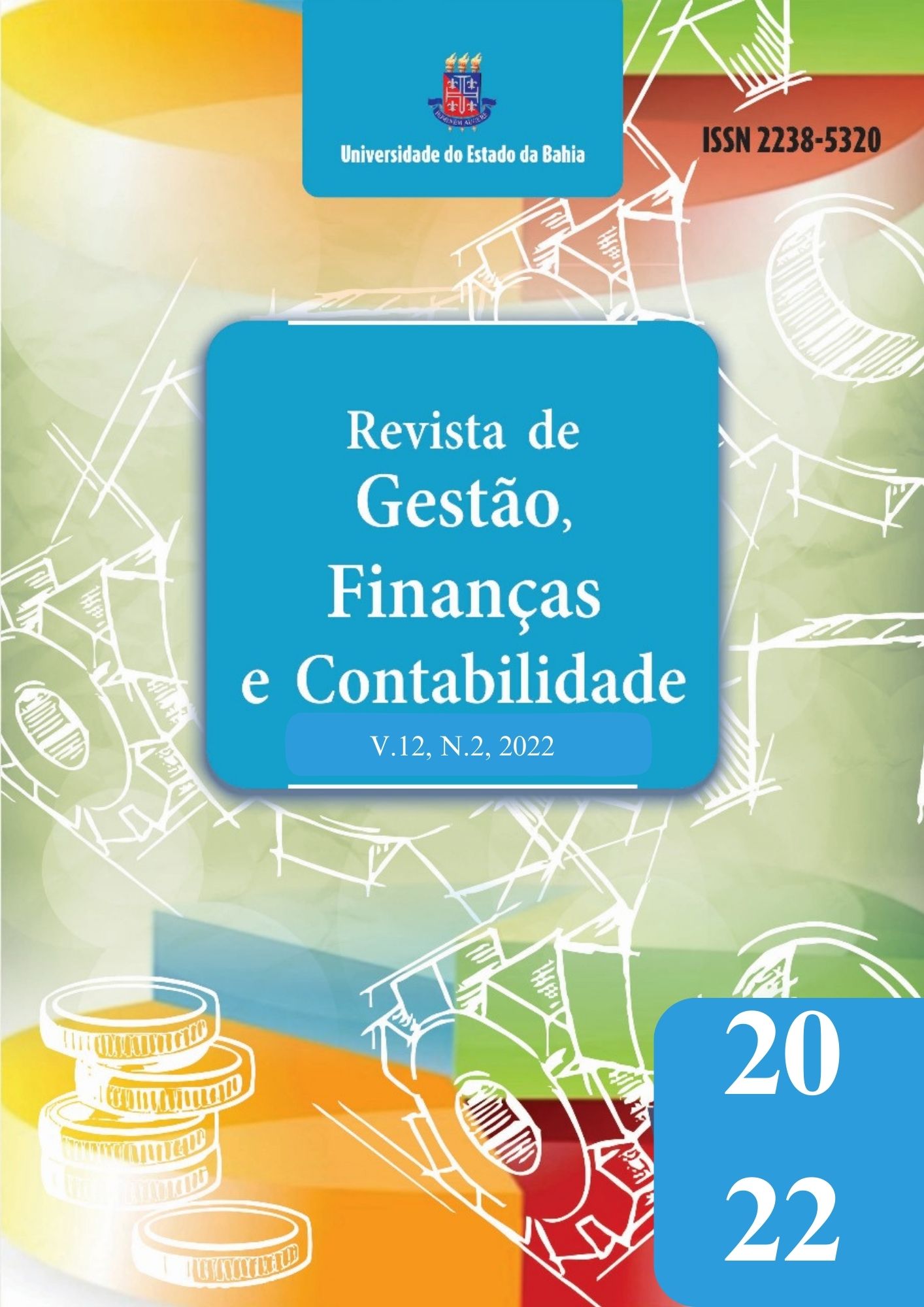Accounting in Profut and in Temerary Management of Football Clubs: Overview and Research Opportunities
DOI:
https://doi.org/10.18028/rgfc.v12i2.10710Keywords:
Football Clubs, Accounting, Profut, Reckless Management, Research OpportunitiesAbstract
Football has evolved from a noble sport played for entertainment reasons into an important form of business. Despite this, the scenario of football clubs persists in debt accumulation with incessant increase in costs. With the intention of resolving this situation, the Sports Fiscal Responsibility Law (LRFE), nº 13,155/2015, was created. In this circumstance, to contribute to the understanding of accounting in sports management, we aim to present, discuss and explain the role of accounting in the Management Modernization and Fiscal Responsibility Program – (Profut) and in reckless management in professional football sports entities. At the end, we present opportunities for future research in the Brazilian context, offering scope for professional practice in the area of Accounting and Administration, incorporating different points, for example, adoption and compliance with regulatory structures and legal requirements; balance between revenues and costs (including the valuation of player assets); explore financial strategies and performance; the composition of the board of directors and the deliberative council; examine financial health using recognized techniques; and potential growth of the sector.
Downloads
References
AHTIAINEN, S.; JARVA, H. Has UEFA’s financial fair play regulation increased football clubs’ profitability? European Sport Management Quarterly, v. 22, n. 4, p. 569-587, 2022.
BRASIL. Lei nº 13.155, de 04 de agosto de 2015. Estabelece princípios e práticas de responsabilidade fiscal e financeira e de gestão transparente e democrática para entidades desportivas profissionais de futebol. 2015. Disponível em: http://www.planalto.gov.br/ccivil_03/_ato2015- 2018/2015/lei/L13155.htm Acesso em: 02 de abril de 2020.
CARLSSON-WALL, M.; KRAUS, K.; MESSNER, M. Performance measurement systems and the enactment of different institutional logics: insights from a football organization. Management Accounting Research, v. 32, p. 45-61, 2016.
CHADWICK, D. W. Federated identity management. In: International School on Foundations of Security Analysis and Design. Berlin, Heidelberg: Springer Berlin Heidelberg, 2007. p. 96-120.
CORDERY, C.; SIM, D.; BASKERVILLE, Rachel. Financial vulnerability in football clubs: Learning from resource dependency and club theories. Third Sector Review, v. 24, n. 1, p. 49-70, 2018.
DIMITROPOULOS, P. Corporate governance and earnings management in the European football industry. European Sport Management Quarterly, v. 11, n. 5, p. 495-523, 2011.
GAMMELSAETER, H. Institutional pluralism and governance in “commercialized” sport clubs. European sport management quarterly, v. 10, n. 5, p. 569-594, 2010.
GARCIA-DEL-BARRIO, P.; SZYMANSKI, S. Goal! Profit maximization versus win maximization in soccer. Review of Industrial Organization, v. 34, p. 45-68, 2009.
GODOI, C. K.; BALSINI, C. PV. A pesquisa qualitativa nos estudos organizacionais brasileiros: uma análise bibliométrica. Pesquisa qualitativa em estudos organizacionais: paradigmas, estratégias e métodos. São Paulo: Saraiva, v. 481, p. 89-112, 2006.
INTERNATIONAL EVENTS GROUP (IEG). Sinais apontam para gastos saudáveis com patrocínios em 2018, International Events Group, Chicago. 2018. Disponível em: www.sponsorship.com/Report/2018/01/08/Signs-Point-To-Healthy- Sponsorship -Spending-In-201.aspx. Acesso em 20 de abril de 2020.
IBOPE REPUCOM. Mapa dos patrocinadores dos clubes da Série A do Campeonato Brasileiro 2019. 2020. Disponível em: http://www.iboperepucom.com/media/2019/12/IBOPE-Repucom-Mapa-do-patroc%C3%ADnio-2019-Campeonato-Brasileiro-S%C3%A9rie-A.pdf Acesso em 25 de abril de 2020.
KÉSENNE, S. Revenue sharing and competitive balance in professional team sports. Journal of Sports Economics, v. 1, n. 1, p. 56-65, 2000.
KOLYPERAS, D. et al. Applying a communicating vessels framework to CSR value co-creation: Empirical evidence from professional team sport organizations. Journal of Sport Management, v. 30, n. 6, p. 702-719, 2016.
MAZZEI, L. C.; ROCCO JUNIOR, A. J. Um ensaio sobre a Gestão do Esporte: Um momento para a sua afirmação no Brasil. Revista de Gestão e Negócios do Esporte (RGNE), v. 2, n. 1, p. 96-109, 2017.
NERI, L. et al. Football players and asset manipulation: the management of football transfers in Italian Serie A. European Sport Management Quarterly, v. 23, n. 4, p. 942-962, 2023.
PLUMLEY, D. J.; WILSON, R.; SHIBLI, S. A holistic performance assessment of English Premier League football clubs 1992-2013. Journal of Applied Sport Management, v. 9, n. 1, 2017.
RUTA, D.; LORENZON, L.; SIRONI, E. The relationship between governance structure and football club performance in Italy and England. Sport, Business and Management: An International Journal, v. 10, n. 1, p. 17-37, 2020.
SÁNCHEZ, L. C.; BARAJAS, Á.; SÁNCHEZ-FERNÁNDEZ, P. Finanzas del deporte: Fuentes de ingreso y regulación financiera en el fútbol europeo. Papeles de economía española, n. 159, p. 200-222, 2019.
TSORDIA, C.; PAPADIMITRIOU, D.; APOSTOLOPOULOU, A. Building a sponsor’s equity through brand personality: perceptions of fans and rivals. Sport, Business and Management: An International Journal, v. 8, n. 5, p. 454-468, 2018.
WILSON, R.; PLUMLEY, D. Finance and accounting in football. London: Routledge, 2018.
WILSON, R.; ANAGNOSTOPOULOS, C. Guest editorial: Performance strategies for meeting multiple objectives: The case of professional sport teams. Sport, Business and Management: An International Journal, v. 7, n. 2, p. 114-120, 2017.
Downloads
Published
Issue
Section
License
Copyright (c) 2023 Revista de Gestão, Finanças e Contabilidade

This work is licensed under a Creative Commons Attribution-NonCommercial 4.0 International License.
Autores que publicam na RGFC concordam com os seguintes termos:
- Autores mantém os direitos autorais e concedem à revista o direito de primeira publicação, com o trabalho simultaneamente licenciado sob a Creative Commons Attribution License (https://creativecommons.org/licenses/by-nc/4.0/), permitindo o compartilhamento do trabalho com reconhecimento da autoria do trabalho e publicação inicial nesta revista;
- Autores têm autorização para assumir contratos adicionais separadamente, para distribuição não-exclusiva da versão do trabalho publicada nesta revista (ex.: publicar em repositório institucional ou como capítulo de livro), com reconhecimento de autoria e publicação inicial nesta revista;
- Autores têm permissão e são estimulados a publicar e distribuir seu trabalho online (ex.: em repositórios institucionais ou na sua página pessoal), já que isso pode gerar alterações produtivas, bem como aumentar o impacto e a citação do trabalho publicado. Porém deve-se observar que uma vez aprovado pelos avaliadores, o manuscrito não poderá sofrer mais alterações. Caso o autor deseje fazê-lo, deverá reiniciar o processo de submissão.




